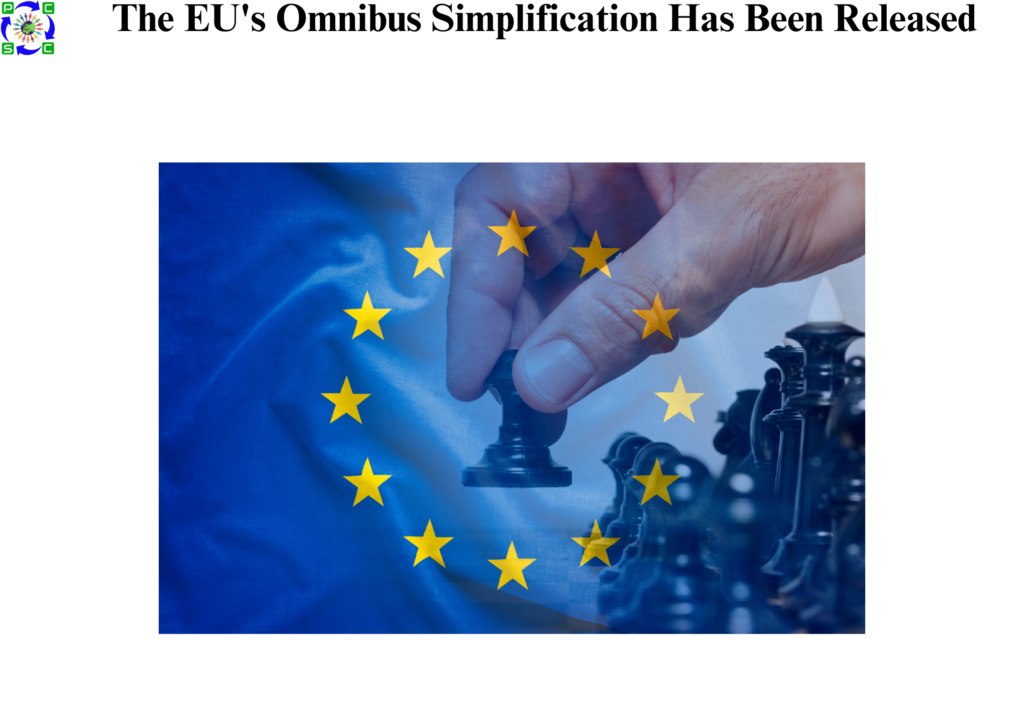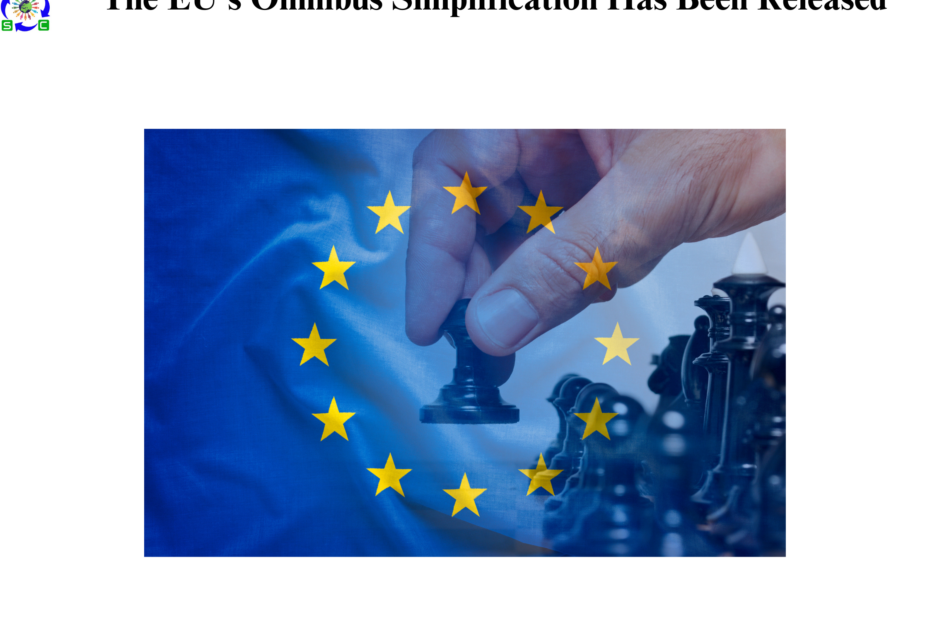 The European Commission has introduced new proposals aimed at reducing bureaucracy and streamlining EU regulations for both citizens and businesses. In its recent Competitiveness Compass, the Commission outlined its strategy for fostering a more prosperous and competitive EU economy, drawing from the recommendations of the Draghi report. To restore competitiveness and drive growth, the EU must create a business-friendly environment that enables companies to thrive.
The European Commission has introduced new proposals aimed at reducing bureaucracy and streamlining EU regulations for both citizens and businesses. In its recent Competitiveness Compass, the Commission outlined its strategy for fostering a more prosperous and competitive EU economy, drawing from the recommendations of the Draghi report. To restore competitiveness and drive growth, the EU must create a business-friendly environment that enables companies to thrive.
The first two Omnibus simplification packages are designed to support this goal. These measures will refine sustainability reporting obligations, focusing primarily on large companies that have the most significant impact on people and the environment, while preventing unnecessary burdens on smaller businesses.
The first package introduces measures to:
-
Enhance accessibility and efficiency in sustainability reporting
-
Streamline due diligence processes to promote responsible business practices
-
Strengthen the Carbon Border Adjustment Mechanism (CBAM) for fairer trade
-
Unlock opportunities within European investment programs
How Will Companies Benefit from This Proposal?
Businesses across the EU, both large and small, stand to gain from the simplifications introduced in the omnibus proposals. If adopted and implemented as proposed, these measures are expected to reduce annual administrative costs by approximately EUR 6.3 billion and unlock an additional EUR 50 billion in public and private investment to support key policy objectives.
The package will specifically shield SMEs from excessive sustainability information requests when they are part of larger companies’ value chains or when dealing with financial institutions subject to the CSRD and CSDDD. Companies with fewer than 1,000 employees and a turnover below EUR 50 million will be excluded from the CSRD’s scope. For companies above these thresholds, the Commission will introduce a delegated act to simplify the existing European Sustainability Reporting Standards (ESRS). Additionally, businesses with more than 1,000 employees but a turnover below EUR 450 million will benefit from voluntary Taxonomy reporting and enhanced flexibility in transition finance disclosures.
While reducing administrative burdens, the proposal will still allow companies outside the CSRD scope to voluntarily report on sustainability issues and use EU Taxonomy reporting if desired.
Simplified Due Diligence Obligations
The revised CSDDD will benefit large companies (including corporate groups, franchise and license systems) that fall under its scope—approximately 6,000 EU-based and 900 non-EU companies—as well as their value chain partners, including SMEs and small midcaps (companies with fewer than 500 employees). Key amendments, such as extending maximum harmonization, streamlining stakeholder engagement, and aligning climate transition plans with the CSRD, will provide further clarity and efficiency for large businesses.
Taxonomy and Sustainability Reporting Simplifications
The Commission is also proposing amendments to the Taxonomy Disclosures Delegated Act and the Taxonomy Climate and Environmental Delegated Acts, which include:
- A 70% reduction in required data points
- Introduction of a materiality threshold to exempt companies with less than 10% eligible activities from mandatory alignment disclosure
- Partial disclosure options to facilitate transition finance
- A simplified Green Asset Ratio (GAR) for banks
- Reduced mandatory reporting on operational expenditure
- Streamlined Do No Significant Harm (DNSH) criteria
CBAM: Supporting Importers
The CBAM adjustments will particularly benefit importers of small quantities of CBAM goods. A new cumulative annual threshold will exempt approximately 90% of importers (182,000 companies) from CBAM obligations, while still covering 99% of total emissions from iron & steel, aluminum, cement, and fertilizers. For those still in scope, the proposal simplifies the authorization of declarants, emissions calculations, reporting requirements, and financial liabilities.
InvestEU: Reducing Reporting Burdens
The proposed amendment to the InvestEU Regulation will reduce administrative burdens for various stakeholders—including implementing partners, financial intermediaries, and final recipients—leading to estimated savings of EUR 350 million. At the same time, these changes will help unlock an additional EUR 50 billion in public and private investment, further boosting economic growth.
These proposals will now be submitted to the European Parliament and the Council for review and adoption.
As part of its 2025 work program, the Commission has outlined a series of actions to eliminate overlapping, unnecessary, or excessive regulations that hinder EU businesses. With these initiatives, the Commission aims to reduce administrative burdens by 25% overall—and by 35% specifically for small and medium-sized enterprises—by the end of its mandate in 2029.
“Stay ahead in sustainability compliance with Global PCCS, —where expert insights meet the latest regulations. Unlock a future where compliance fuels sustainability, helping your business thrive in a greener, well-regulated world. For more information, contact us at info@globalpccs.com. “








 Authorised IMDS & CDX Training & Consulting partner for
Authorised IMDS & CDX Training & Consulting partner for






